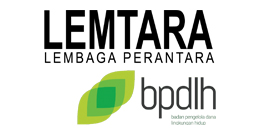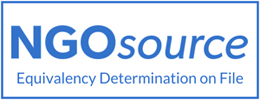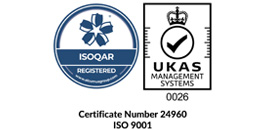Inclusive Development
Development and economic growth should be able to make a significant contribution to reduce poverty and to cut the development gaps. Penabulu believes that economic development must be carried out in a sustainable and inclusive way.
Development nowadays is an exclusive development model, which only sets the development aspects of economic growth as its goal; so, it happens sometimes that the economic growth increasing without accompanied by the equality of development, that causes high number of unemployment, high poverty rates, and widening gini ratio, as well as the degraded support of the environment, which continuously occurred as a result of the development process.
Many groups are marginalized from development because of gender, ethnicity, age, sexual orientation, disability or poverty. Inequality of development has clearly become an effect of the exclusive development model. Greatest asset will always be owned only by a few people.
Inclusive development which is also reducing poverty can only be achieved if all parties want to contribute to create equal opportunities, to share the benefits of development and provide maximum space for participation in decisions making process; entirely based on respect for the values and principles of human rights, participatory, non-discriminatory and accountability.
The main strategy of inclusive development is the creation of productive and remunerative employment, the supply of an effective and save social nets in order to protect those, who are unable to work or those, who only can get a little benefits of development, also improvement of basic public services and adequate support of public policy.
The program is implemented as a developing model of local economic development, with the full involvement of the role of government, the business sector and civil society. This model is translated in the form of intervention of the program: assessment of the potential commodities/sectors, the participative development of planning documents and agreements, the development of multi-stakeholder forums, public policy advocacy is needed to build a climate of inclusive development and support for small and medium enterprises (especially those based on sustainable use of natural resources).
- Local Economic Development Strategic Planning and Actions for Local Governments towards ASEAN Economic Community 2015
- Sanur Tourism-based Inclusive Economic Development
- Managing Risk Through Economic Development Program (MRED)
- Supporting Humanitarian Initiative for Transformation (SHIFT) in Asia – INO- (Gates)
- District of Sintang and District of Putussibau, West Kalimantan
- District of Nunukan and District of Malinau, North Kalimantan
- District of Sangihe Islands and District of Siau Tagulandang Biaro Islands, North Sulawesi
- District of Badung, Bali
- Kulawi and Lindu Sub District, Sigi District, Central Sulawesi
- Sub-district of Grobogan, Central Java
- Sub-district of Padang Pariaman, West Sumatera
- Sub-district of East Lombok , West Nusa Tenggara
- Indonesia Sustainability Center
- Alliance between IBCSD, Penabulu and Synthesis to provide consultancy services and technical assistance on development of models and practices of sustainable corporate governance.
- Upacaya | Social Business Development Services
Service unit of Penabulu Alliance, focusing on the development of social business model, especially for the community-based business unit which work on sustainable use of natural resource.
- Interface | Enhancing Transparency of Public Information
Service unit of Penabulu Alliance, working for the development of ICT-based interface platform to encourage government disclosure of public information and development of dialogue forum between the government and citizens.
- UCLG ASPAC (United Cities and Local Governments Asia-Pacific)
The largest regional chapter of UCLG, based in Jakarta, Indonesia, the center of knowledge on issues of local governments in the Asia Pacific region.
- IBCSD (Indonesia Business Council for Sustainable Development)
One chapter of the WBCSD that consists of a group of companies that operate in Indonesia and has a commitment to promote sustainable development through sustainable economic growth, ecological balance and social progress.
Consultants in developing schemes, strategies, plans, roadmaps, instrument and model of sustainable development based on studies and research work.
In more than 40 countries around the world, nearly 6,000 team of Mercy Corps members work side by side with people living through poverty, disaster, violent conflict and the acute impacts of climate change. Mercy Corps is committed to creating global change through local impact — 85 percent of Mercy Corps team members are from the countries where they work.
Mercy Corps bring a comprehensive approach to every challenge, addressing problems from multiple angles. Thanks to support from Mercy Corps’ extended global community, Mercy Corps has provided $4 billion in lifesaving assistance to meet the urgent needs of more than 220 million people over nearly 40 years. Mercy Corps also go beyond emergency aid, partnering with local governments, forward-thinking corporations, social entrepreneurs and people living in fragile communities to develop bold solutions that make lasting change possible.
Our mission is to create a world where every person has the opportunity to live a healthy, productive life. For 25 years, the Gates Foundation has been committed to fighting the greatest inequities in the world.




